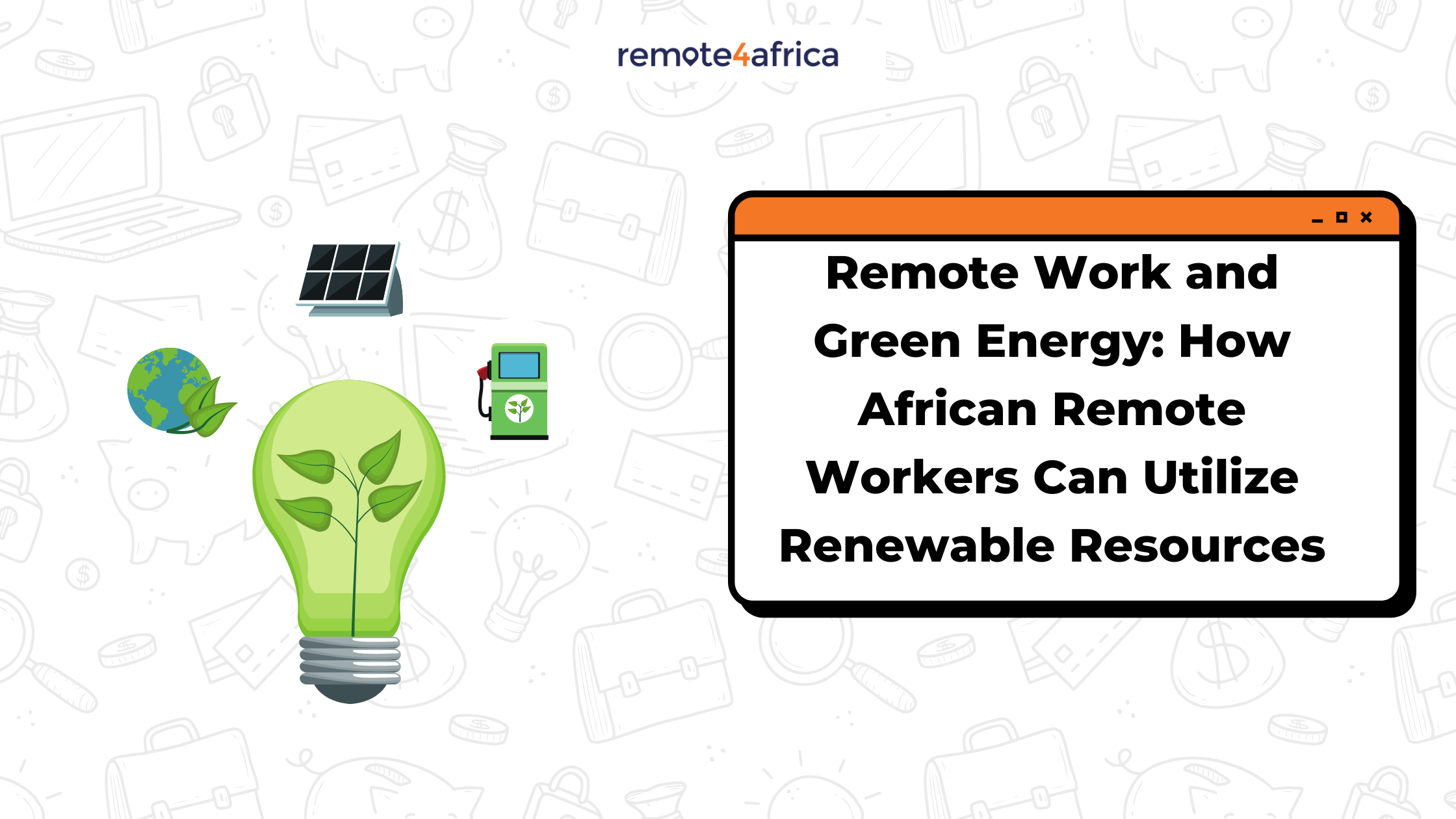Remote Work and Green Energy: How African Remote Workers Can Utilize Renewable Resources

Introduction
As an African remote worker, your job offers you benefits that include freedom and flexibility to choose when and where you work. These perks give you the opportunity to give back to the environment by adopting a lifestyle that fosters a more sustainable environment through green energy.
In this article, you will get to know why you should embrace renewable energy, how you can access it in Africa and also tips to utilize renewable resources.
Why should remote workers use renewable energy?
Traditional energy sources like oil and coal are finite, and they are also harmful to the environment. Whereas renewable energy is clean, sustainable, and affordable. As an African remote worker, you are not unfamiliar with the unreliable power supply; renewable energy is a means for a consistent and eco-friendly power source.
How can remote workers access renewable energy sources in Africa?
Solar Energy
The continent, Africa, is blessed with abundant sunshine, which makes solar power the most ideal for remote workers that would like to convert to renewable energy. Solar panels have become more accessible and affordable over the years, which has enabled some remote workers to have their own power source at home. Aside from reducing the cost of electricity to power your work devices, you will also minimize your carbon footprint.
Community-Powered Energy (Microgrids)
Microgrids are power grids that can operate independently or in conjunction with larger grids. These microgrids often rely on renewable energy sources like solar energy. By joining or creating a microgrid, you can benefit from a reliable and sustainable power supply while also making the environment cleaner.
Tips for African remote workers intending to switch to renewable energy sources
- Assess Your Energy Needs: Determine how much power you need to run your home office. This will help you decide the size of the renewable energy system that suits your needs.
- Invest in Solar Panels: If you have the space and budget, look for solar panel professionals in your vicinity to help you fix them.
- Invest in Battery Storage: a good storage system will support your solar panels and keep excess energy so that you can use this on cloudy days or at night when the sun is not in the sky.
- Join a Microgrid: This is a massive solar panel grid that you can join or start in conjunction with other remote workers; this way you will be able to save on the cost of building solar panels.
- Use Energy-Efficient Devices: make sure your appliances are energy-efficient. Make use of LED lights, energy-saving power strips, and efficient computers to reduce your energy consumption.
Conclusion
We should Incorporate renewable energy into our daily lives to allow for a more sustainable environment. As a remote worker in Africa, embracing renewable energy such as solar energy will not only save cost for you in the long run, but you will also get to reduce the carbon footprint in the environment, thereby making it safer and healthier. If you cannot afford to do this alone, find a community of remote workers around you that you can collaborate with.
